National
Nepali tea unlikely to get easy entry to India
Trade hurdles imposed by India on export of Nepali tea are unlikely to be eased anytime soon.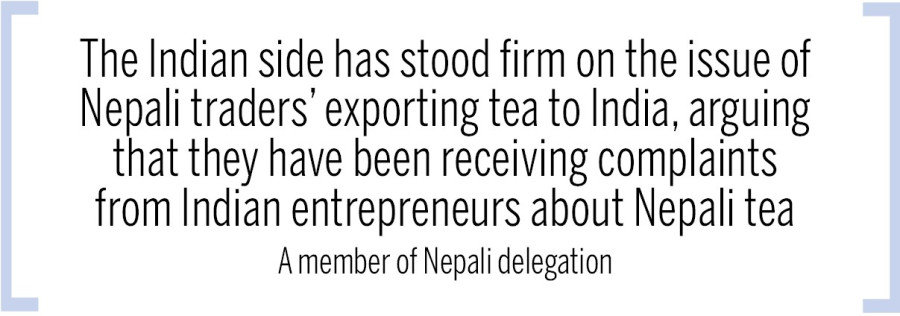
Kamal Dev Bhattarai
Trade hurdles imposed by India on export of Nepali tea are unlikely to be eased anytime soon.
According to Nepali officials participating in the Nepal-India Inter-Governmental Committee meeting that began in New Delhi on Tuesday, the Indian side appeared reluctant to ease the trade hurdles.
Nepali tea exporters say they now need to obtain quality certificates from an Indian laboratory for each shipment.
Earlier, Nepali tea exporters were allowed to carry out trade multiple times with multiple parties after receiving quality check certificate valid for six months.
Nepali traders have complained that the southern neighbour has been imposing non-tariff barrier on Nepali items one after another. Nepali leather exporters are also facing similar problems.
During the opening of the two-day meeting at the commerce secretary level, the Indian side insisted on certification from Indian laboratory and sample collection every time before allowing exporters to supply Nepali tea to India, said officials.
“The Indian side has stood firm on the issue, arguing that they have been receiving complaints from Indian entrepreneurs about Nepali tea,” said a member of the Nepali delegation. “Many traders, mainly from Darjeeling, have been raising question about the quality of Nepal tea,” he quoted the Indian side as saying at the meeting.
The Indian side has demanded that Nepali exporters provide quality specifications of both CTC and orthodox tea before exporting the item to the southern neighbour. A source said India also pointed at the presence of chemical residues in the agro product. Traders said each quality certificate costs around Rs 70,000, which is too much for small farmers that export around 1,000kg to 2,000kg at one time.
Likewise, the strict pesticide regime that India has been imposing on Nepali products in line of the developed countries is also likely to affect Nepali agro products.
The Nepali delegation on Tuesday had presented the issue of trade restriction as the top agenda during the IGC meeting. The Nepali side also expressed its concern about Nepali processed leather that has been facing Indian trade hurdles for the last three months.
Likewise, the Nepali side also plans to raise the issue of quantitative restrictions on vegetable ghee, acrylic yarn, zinc oxide and copper products exported from Nepal.
Scrapping counter-veiling duty on Nepali ready-made garments, copper and brass utensils and kattha are Nepal’s top priority. Besides, Nepal has been seeking support of the Indian side on trade facilitation along with the removal of all types of para-tariff and non-tariff barriers. According to the source, discussions on the issues are underway. “A conclusion at Wednesday meeting is very unlikely,” he said.
The IGC committee is constituted under the Nepal-India trade treaty. The committee meetings provide a platform for resolving various trade related issues and discuss enhancement of the bilateral trade between the two countries.




 7.12°C Kathmandu
7.12°C Kathmandu
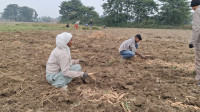

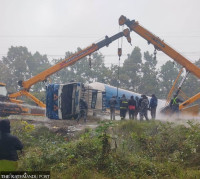





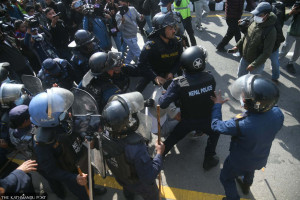
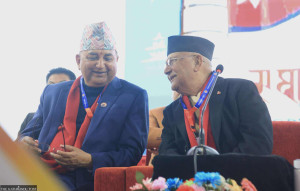



%20(1).jpg&w=300&height=200)

